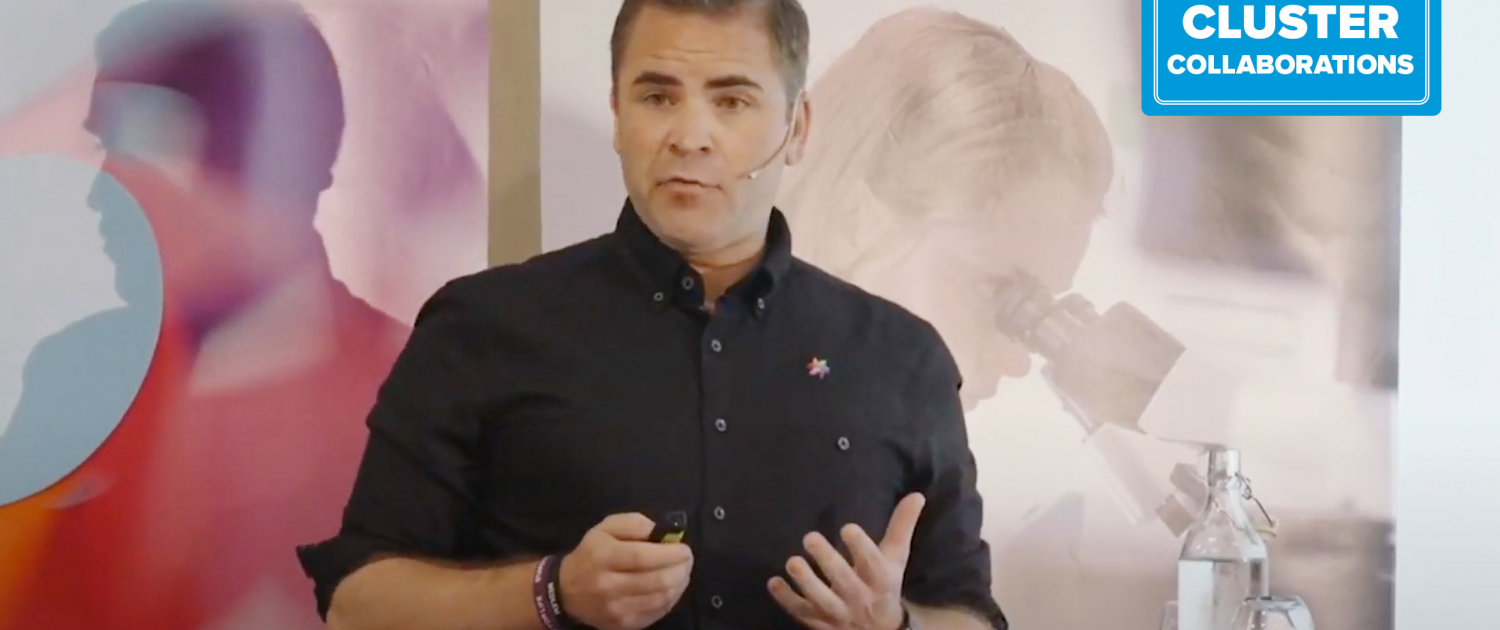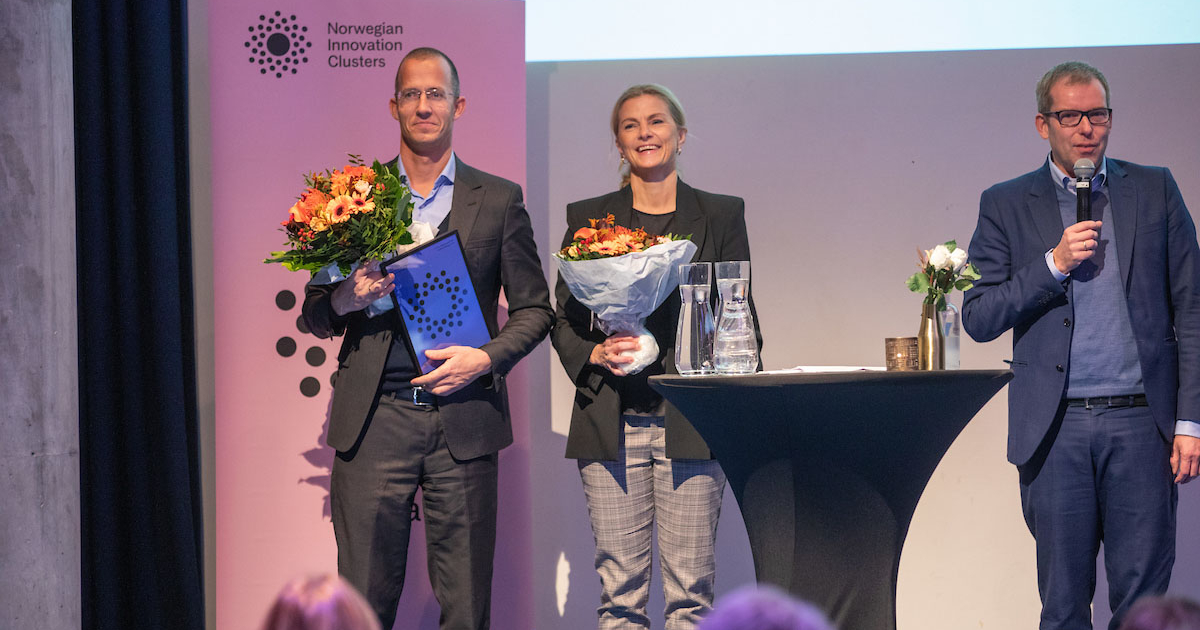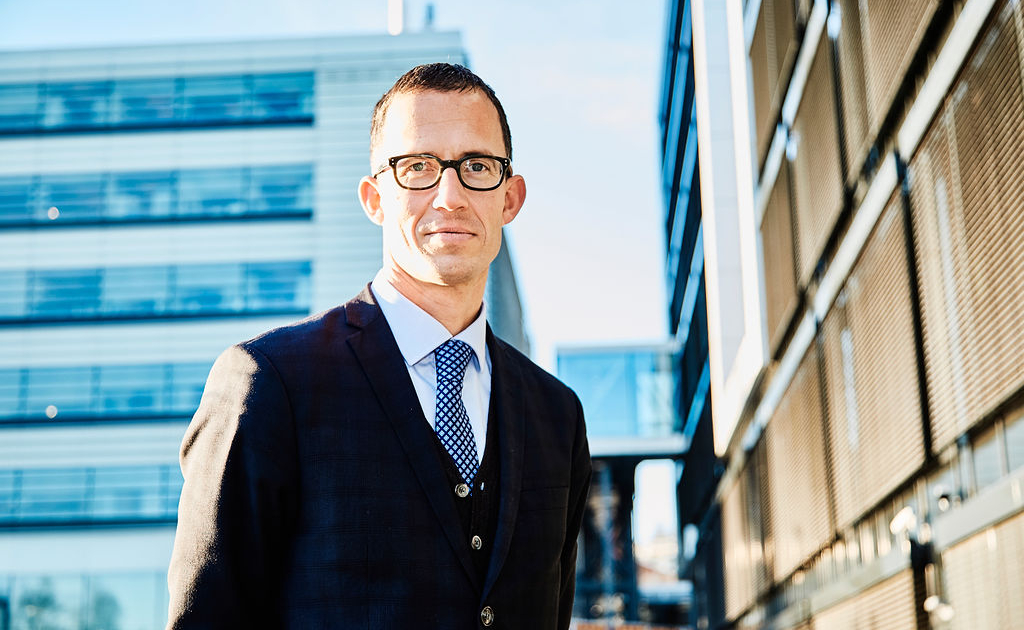
What is the The Future of Cancer Treatment all about?
The seminar series The Future of Cancer Treatment (Fremtidens kreftbehandling in Norwegian) usually has two yearly events, always about new possibilities in cancer treatments, and how Norway can be better equipped to keep up with the rapid developments in precision medicine.
It started as a political meeting in 2015, during a political festival in the southern Norwegian town Arendal. The last seminar was also held in Arendal, 18 August 2021.
You can watch the latest Arendal-event on our YouTube channel:
A collective effort
The series is a collaboration between Oslo Cancer Cluster, Association of the Pharmaceutical Industry in Norway (LMI), the Norwegian Cancer Society (Kreftforeningen), and the three pharmaceutical companies MSD, AstraZeneca, and Janssen.
Why have the same six partners worked together on the same subject for six years? Part of the answer is the collaboration itself.
The collective effort of hosting these seminars has value to everyone involved. For Oslo Cancer Cluster, facilitating collaborations between members is one of our main functions as a research and industry cluster. In addition, we have a role as a changemaker, in which we aim to improve the framework conditions for cancer innovations in the Norwegian health industry and raising expertise. The Future of Cancer Treatment allows the cluster to act as a changemaker and bring members with common goals together.
At the forefront of cancer care
Behind each seminar, there is of course a great deal of planning. Mattis Dahl Åmotsbakken, Associate Director Policy and Communications at MSD Norway, is one of the permanent members of the planning group, together with the other voices quoted in this article.
“The collaboration between this truly cross-functional team ensures innovative ideas that always are at the forefront of cancer care, constructive exchange and learning for everyone involved, as well as a solid output that both attracts and generates interest among a broad variety of stakeholders,” said Åmotsbakken.
He added that a mature cluster is a well-fitted frame for these kinds of collaborations.
“The fact that Oslo Cancer Cluster is a well-established and experienced cluster ensures efficiency, continuous and profound insights into healthcare policies and a solid perception among stakeholders that output from Oslo Cancer Cluster’s collaborative activities is of high quality and solution minded. The cluster’s accumulated experience and position in the cancer care domain coupled with the continuous generation of innovative ideas make the cluster a unique arena for collaboration and development of actionable solutions to further ameliorate the Norwegian health care system,” said Åmotsbakken.
The common interest
Hege Edvardsen, Senior Advisor at LMI, underlines the variety of audiences the seminars are designed to reach.
“This meeting series is arranged by partners deeply invested in bringing the future of cancer therapies to Norwegian patients, specifically through clinical studies, but also in general. The collaboration ensures that we are looking at this issue from all perspectives, since the meetings are targeted to researchers, clinicians, politicians and government bodies, and also to patients and their next of kin,” said Edvardsen, and added:
“The partnership behind this meeting series is in itself an example of how private-public partnerships can help us challenge each other, build culture and collaboration and together press forward a topic of common interest.”
Astra Zeneca is the second industry partner in the series, and Line Walen, Head of Governmental Affairs at AstraZeneca Norway, has been part of the meeting series planning group for a couple of years.
“The group has a common interest in making effective treatments available for patients and to put focus on obstacles, and suggestions for solutions. It is great to come together among patient organisations, clusters and companies to work towards a common goal on important topics. We hope this seminar series will continue in the years to come, and that this will be a good contribution to the debate on how to make new and effective treatments accessible for the patients who need them,” said Line Walen.
Cancer on the political agenda
The third and final pharmaceutical company involved in the series is Janssen Norway. Marthe Brovold Løberg, Communication and Public Affairs Manager at Janssen, has been part of the planning group since the start in 2015. She said:
“Janssen is very proud to be a collaboration partner in this well-established political meeting series that has highlighted important issues since 2015. We all have a common goal; to secure the best possible cancer treatment, now and in the future, and our focus is to enable fast and equal access to innovative treatment in Norway. Janssen wishes to be a part of the solution for cancer patients. To achieve this, collaboration is key,” said Marthe Brovold Løberg.
Thomas Axelsen, head of the political department at The Norwegian Cancer Society, also part of the planning group, added that cross sectoral collaboration is important for a patient organisation.
“This meeting series has been a great arena for the Norwegian Cancer Society to find common ground and raise important issues together with other actors in a field that is of enormous importance to cancer patients. Even though we sometimes have different perspectives and incentives, most of the time we share a common end goal – and finding together across sectors is both important and necessary for us to succeed at creating better cancer care,” said Thomas Axelsen, and added:
“The most important thing we want to achieve is putting cancer on the political agenda and creating a meeting place where different sectors can come together and offer solutions to existing problems. We want the politicians who attend our meetings to leave with more knowledge, and new input that can lead to needed political action. To some extent I think we have succeeded at this so far.”
Why Arendal
Arendalsuka, the political festival in the southern Norwegian town Arendal, taking place in August, has become an important arena for those who want to improve aspects of Norwegian society and politics. Oslo Cancer Cluster has participated several years to meet key players and accelerate the development of cancer treatments.
There was a natural pandemic pause in Arendalsuka in 2020 but in 2021 the town was once again the hub of politics and organisations for a week in mid-August, and The Future of Cancer Treatment hosted an open breakfast seminar about health data – from politics to clinics.
About Cluster Collaborations
In an article series called Cluster Collaborations, we want to highlight the fruitful collaborations in the cluster, underlining the very essence of what Oslo Cancer Cluster is all about, from cancer research to cure.



 Brett Jordan/ Unsplash
Brett Jordan/ Unsplash

